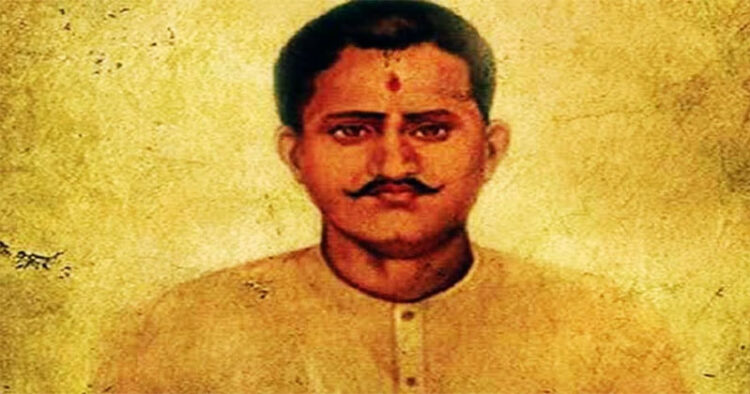A brave son of Mother India with twirled moustache and a desire for freedom and revolutionary anima reverberating in every inch of his body and poetry, Pandit Ram Prasad Bismil was among the most notable Indian Freedom Fighters who fought against the British and made it possible for his Mother India to breathe in Independent air.
Ram Prasad Bismil was born on June 11, 1897, in Shahjahanpur, Uttar Pradesh, to Murlidhar and Moolmati.
The idea of freedom and revolution got first ingrained in him after the death sentence on Bhai Parmanand, a freedom fighter and Arya Samaj member. After that, he wrote a poem out of his anger, ‘Mera Janm’.
He always says, “independence would not be achieved by means of non-violence”.
After conflicts and growing resentment with the Congress party, Ram Prasad Bismil became a member of the Hindustan Republican Association in his teenage. Through this revolutionary organisation, Ram Prasad Bismil came to know other freedom fighters like Chandrashekhar Azad, Bhagat Singh, Sukhdev, Ashfaqulla Khan, Rajguru, Thakur Roshan Singh and Rai Ram Narain.
The Indian revolutionary Ram Prasad Bismil also participated in the Kakori conspiracy of 1925 against the British
Empire is remembered even today for his contribution to the Independence movement.
The Kakori conspiracy was an armed robbery on August 9, 1925, on a train in central Uttar Pradesh. The Britishers instituted the subsequent court trial against more than 20 Indian revolutionaries for the brave act.
The primary objective of the Kakori Conspiracy was to gain funds for the HRA by taking the money from the British Administration by force. The other objective of the HRA was to create a positive image of the HRA among Indians by attacking a high profile British government target with minimum collateral damage.
Following the robbery, the British Administration launched a search to arrest all the revolutionaries.
In Lucknow Central Jail, Bismil wrote his autobiography, considered one of the finest works in Hindi literature, and also the cult song “Mera rang de Basanti Chola”.
While in jail, he also wrote ‘Sarfaroshi Ki Tamanna’ which became the anthem for freedom fighters.
In 1928, renowned journalist Ganesh Shankar Vidyarthi published his autobiography, Kakori Ke Shaheed. Ram Prasad Bismil translated many Bengali books into Hindi. Among his works are The Bolshevik Programme, A Sally of the Mind, Swadeshi Rang, and Catherine.
He was sentenced to death at the young age of 30 and was hanged two days before the scheduled date.




















Comments